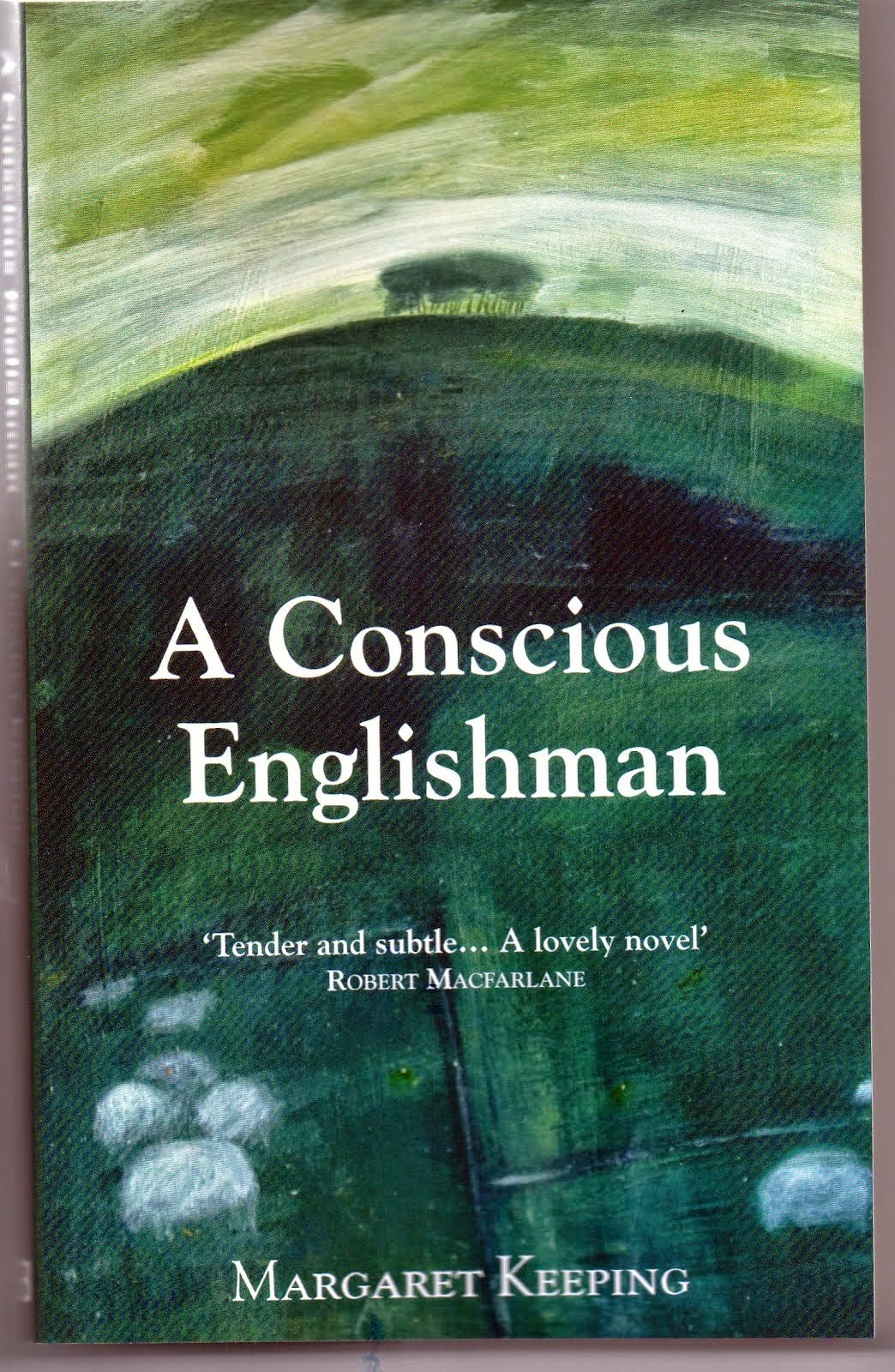A novel approach to biography, or a novel?
My novel, A Conscious Englishman, traces the life of Edward Thomas from 4th August 1914 to his death in April 1917. This is the same period more or less that Matthew Hollis's biography, 'Now All Roads Lead to France', and the new play, 'The Dark Earth and the Light Sky' opening today at the Almeida Theatre, follow. They are the years in which Edward Thomas became a poet and soldier.

The Dark Earth and the Light Sky, Almeida Theatre, London. Image iwantdesign
As Richard Eyre said recently, there's a head of steam building behind Edward Thomas. Mine has been a long time building as I started writing the novel while taking the creative writing post-grad Diploma at Oxford, around 2007. I'd written nothing of that length before unless I count my MA Dissertation on Thomas written a few years earlier.
It's interesting but not surprising that each of us chose Thomas's own words as titles for the work, as of course had Helen Thomas in 'Under Storm's Wing.' Otherwise I'm sure the differences between the forms must will mean striking differences of emphasis and theme. A biography is of course a story, a narrative, as is a play and a novel. The difference is in the use of imagination - a biographer holds up a mirror to reflect, empathically, what is there and restrains imagination, while a poet, novelist or playright uses imagination and imagery to convey something more vivid and perhaps more universal.
Some have criticised Matthew Hollis's book as in part 'novelistic', speculative to a degree hardly acceptable in biography, on Frost's Road Not Taken poem and the 'gamekeeper incident' as propelling Thomas into enlisting. Conversely, I worry that my novel is sometimes too close to biography, crammed with 'research', facts just because I happen to know them. Gossip even. Then it becomes difficult to keep an eye on the broad arc of narrative and its tensions. Well, the readers will have to judge that.
 I have a great deal I want to write about the flood of 'faction' or real-life novels there has been in the last few years. I'm also very well aware that it's almost Remembrance Day and want to acknowledge that. But the truth is that the original business of the blog has caught up with me at present - proof -reading, with probably far too many little changes for Frank's liking, and a final attempt at getting the blurb right and agreeable to both.
I have a great deal I want to write about the flood of 'faction' or real-life novels there has been in the last few years. I'm also very well aware that it's almost Remembrance Day and want to acknowledge that. But the truth is that the original business of the blog has caught up with me at present - proof -reading, with probably far too many little changes for Frank's liking, and a final attempt at getting the blurb right and agreeable to both.Such is modern technology that it can still be done at this late date.
I hope to write about the biographical fictions and Remembrance shortly.
Frank Egerton of StreetBooks
A Poem:
Written several months before Thomas enlisted but looking clear-sightedly towards the war.
One of his best poems for me. That word 'salted' carries so much meaning.
The Owl
Downhill I came, hungry, and
yet not starved;
Cold, yet had heat within me
that was proof Against the North wind; tired, yet so that rest
Had seemed the sweetest thing under a roof.
Then at the inn I had food,
fire, and rest,
Knowing how hungry, cold, and
tired was I. All of the night was quite barred out except
An owl’s cry, a most melancholy cry
Shaken out long and clear upon
the hill,
No merry note, nor cause of
merriment, But one telling me plain what I escaped
And others could not, that night, as in I went.
And salted was my food, and my
repose,
Salted and sobered, too, by
the bird’s voice Speaking for all who lay under the stars,
Soldiers and poor, unable to rejoice.




No comments:
Post a Comment